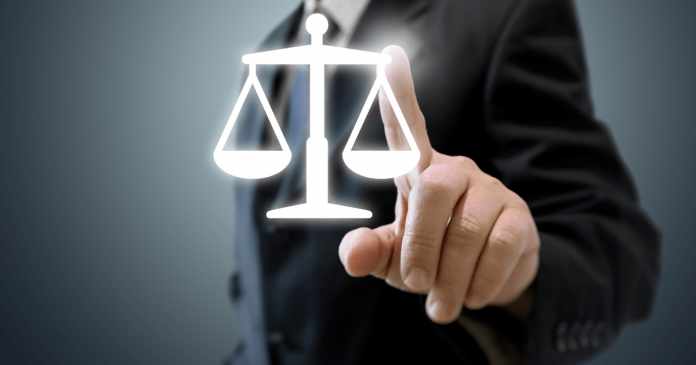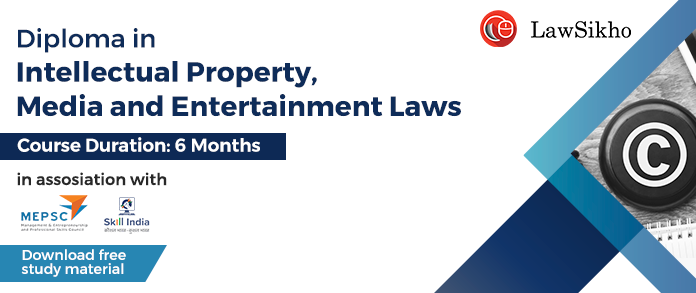This article has been written by Preethikha AR, a student from the School of Excellence in Law, Chennai, currently pursuing Paralegal Associate Diploma and have pursued a Diploma in US Intellectual Property Law and Paralegal Studies at Lawsikho. This article will focus on detailing the safe harbour provisions for intermediaries and the law relating to the same in India and the US.
This article has been published by Sneha Mahawar.
Table of Contents
Introduction
The Internet and social media have become an inevitable part of life in today’s world. There exists no business without an online platform. Almost all kinds of commercial trade require an online presence to become successful. From online shopping to big business dealings and e-commerce- everything is done digitally, like advertisements, customer feedback, interactions, etc. These platforms that connect people worldwide are called ‘Intermediaries’ and they play a vital role in e-commerce by making communication between two extremes possible.
In the digital era, people all over the world rely on social media for news, entertainment, etc. People working from home can do their job by sitting in one corner of the room, all made possible because of the internet. At this time, it is highly perilous to trust anything and everything that pops up on the internet because of fake news being spread and read and relied upon by millions. It is important to ensure that sources are reliable and trustworthy. The intermediary who only delivers the information to the public at large should not be made responsible for anything posted online by the content creators.
This often calls into question: Is it right to make intermediaries liable for third-party’s actions of posting infringing or abusive content on their platform though they don’t actively participate in the creation of the same? Can intermediaries alter the content of the user if they feel it is unethical to post such content? If intermediaries modify such reprehensible content, does that not mean infringing the owner’s right to privacy and right to express views and opinions, as the intermediary’s job is only to post the content and not decide whether the content is legitimate?
This article aims to provide answers to these questions by presenting an efficient and methodical approach through a comparative analysis of different jurisdictions in India and the US vis-à-vis the safe harbour mechanism.
What is a safe harbour provision
A safe harbour is a provision in a statute or a regulation that specifies that certain infracting conduct will be deemed not to violate a given rule. A safe harbour provision is a legal provision to eliminate legal liability in certain situations as long as certain conditions are met. Safe harbour acts as a protective shield against any legal liability expected from the immoral acts of third parties. If social media platforms don’t act by the new rules, their indemnity will be taken away according to Section 79 of the Information Technology Act, 2000 (IT Act). Safe harbour provision grants protection from liability or penalty provided they satisfy certain rules of the IT Act. Intermediaries were permitted to use the safe harbour principle to safeguard themselves from being held liable for criminal actions of an external party that were carried out without the knowledge of the intermediary.
Who are intermediaries and what do they do
Section 2(w) of the Information Technology Act 2000 defines an “intermediary” with respect to any particular electronic record as “any person who, on behalf of another person, receives, stores, or transmits that record or provides any service with respect to that record, which includes telecom service providers, network service providers, internet service providers, web-hosting service providers, search engines, online payment sites, online-auction sites, online-marketplaces, and cyber cafes.” The term ‘intermediary’ refers to a coordinator who enables the dissemination of information on the internet between the content producer and users across the globe. The intermediaries are supposed to deal with various forms of information, ranging from benign to harmful on the spectrum.
An intermediary is a person or third party who acts as a bridge between two parties. They act as a source of communication where there is no direct interaction between the parties, thereby enabling a smooth exchange of information. It is only through the intermediary that data is passed and work is done. Digitally speaking, online distribution channels known as ‘intermediates’ are in charge of simultaneously transmitting a small amount of content to a large audience. In most countries, intermediaries are provided with indemnity against the infringement of intellectual property.
Reasons for introducing safe harbour provisions
The safe harbour protection for e-commerce marketplaces is an important aspect that deserves careful consideration. The concept of safe harbour under Section 79 of the IT Act, 2000, acts as a defence for the intermediaries, but there are some instances where Intellectual Property Rights (IPR) are openly violated by the intermediaries. Safe harbour protection acts as an inherent security granted to intermediaries against the imposition of liability for acts done by third parties.
Safe harbour provisions were introduced to protect intermediaries from becoming liable for the acts of third parties, provided the intermediary observed ‘due diligence’. Intermediaries are shielded from liability under Section 79 of the IT Act for data, material, and information shared by users through them but over which they have no direct knowledge. Under the safe harbour, intermediaries are protected from third-party information and data made available or hosted by them thereby acting as a defence. Intermediaries are protected by safe harbour from all legal consequences unless they knew that illicit content was being broadcast on their platform.
Section 79 of the Information Technology Act 2000 introduced the ‘safe harbour’ immunity clause that protected an intermediary from being held liable for third-party content on its platform and affords broad-ranging legal immunity – provided the intermediary observed ‘due diligence’ and followed certain ‘guidelines’ as prescribed by the Central Government. Only if due diligence laid down by the government is not followed by the intermediary, it would be made liable for a third party’s actions, even if the same were done without the knowledge of the intermediary.
Information Technology (Intermediary Guidelines and Digital Media Ethics Code) Rules, 2021
The Intermediary Guidelines Rules, 2011 were replaced by the Information Technology (IT) Rules, 2021, which were created by the Union Government in accordance with Section 87(2) of the IT Act, 2000. Under this, large digital platforms with more than 5 million users would be required to publish periodic compliance reports each month. The Rules prescribe a framework for the regulation of online content by issuers of current affairs, news, and audio-visual content. In India, all intermediaries, including OTT platforms and digital portals, must offer a grievance redressal process to address user complaints. These rules aim to empower netizens for the timely resolution of their grievances with a mechanism for redressal and assistance of a Grievance Redressal Officer (GRO) residing in India.
The IT (Intermediary Guidelines and Digital Media Ethics Code) Rules 2021, Rule 4(1)(d), mandate that social media outlets post monthly compliance reports that include the following information:
- Information about complaints filed and measures performed in response, and
- The number of particular communication links or informational components that the social media platform has blocked or erased as part of proactive monitoring.
What would be the liability of intermediaries for the content shared by third parties
It is a wrong conception that anything said and communicated by a third party will hold the intermediary liable. Intermediaries are only a way of communication between people, and they are not responsible for whatever is being done by others. They are middlemen in a process or transaction. And to avoid this situation where the intermediary will be held liable for the acts of the third party, safe harbour provisions were introduced to safeguard and protect intermediaries from third-party infringers.
An intermediary’s primary responsibility is to transmit the information it has received. As such, the intermediary doesn’t create or assist in creating such information. The creators of the original content are third parties who send it to the intermediary, who then transmits it to other users. Intermediaries act as a mode of communication to share information between the content creator and the users. To hold the intermediary responsible for subject matters posted on the platform by a third party is unreasonable, as tracking the immense amounts of data exchanged online is impossible, and not just that, it will also amount to an infringement on the fundamental rights of the user.
Intermediary liability
Intermediary liability takes place when the government can hold technological intermediaries, such as Internet Service Providers and websites, liable for unlawful content created by users of those services. Intermediaries will lose their safe harbour protection if they fail to comply with the revised 2021 Rules. This implies that anyone may file a lawsuit against such intermediaries for any illegal third-party content that constitutes violations, making the intermediaries responsible for the same. So as to avoid such prosecution and the imposition of arbitrary penalties, the ‘safe harbour’ principle provides security to such entities. Unless they are aware of the illicit content being communicated on their platform, safe harbour exempts intermediaries from all culpability.
Safe harbour provisions in India
Any social media intermediary will not be subject to legal action for any third-party information they provide or host, according to Section 79 of the IT Act, 2000. It further implies that the available protection shall be applicable only when the said intermediary does not initiate the transmission of the message or modify any information contained in the transmission. It indicates that a social media platform won’t be held accountable for any legal actions if it serves as a bridge to transmit information from one person to another without interfering.
However, if the intermediary, upon receiving the notification by the government or an appropriate agency, determines that any information, data, or communication link controlled by it, is being used to commit any unlawful act and fails to remove such material from its platform, then it may face legal prosecution, as the case may be.
New Rules under the IT Act
Earlier, the law allowed internet intermediaries to enjoy wide-ranging immunity from legal liability. For example, while news organizations and broadcasters have always been at risk of being held legally responsible for social media scandals and other speech-related offences, intermediaries have been shielded from liability despite publishing content because of the protection provided by Section 79.
The primary objective of the new regulations is to implement new protections for Internet intermediaries that want to benefit from the legal immunity provided by Section 79 of the IT Act. The new law requires internet liaisons, especially significant social media intermediaries (namely, Facebook, Instagram, YouTube, and WhatsApp), to acquire the benefit of legal immunity by discharging certain duties and responsibilities under Indian law. These duties include creating a functional grievance redressal mechanism, a proper takedown system, the appointment of India-based compliance officers, the deployment of automated filtering software, traceability requirements for certain specific purposes, the right of users to seek verification of their accounts, the identification of a physical address for the purpose of serving legal notices, and a few more. If an internet intermediary fails to abide by these new rules, they lose the immunities offered under Section 79.
“Active participant” under safe harbour protection
In the case of Christian Louboutin Sas v. Nakul Bajaj and Ors. (2018) (Louboutin Case), Delhi High Court distinguished between “active” and “passive” intermediates when determining the liability of the e-commerce platform “darveys.com.” The Single Judge Bench ruled that only whether an e-business platform plays an “active” or “passive” role in running such a platform will determine whether it is entitled to safe harbour protection under Section 79(1).
The Court observed that “when an e-commerce website is involved in or conducts its business in such a manner, which would see the presence of a large number of elements enumerated above, it could be said to cross the line from being an intermediary to an active participant”.
It further held that “any active contribution by the platform or online marketplace completely removes the ring of protection or exemption which exists for intermediaries under Section 79”.
The question of whether or not the intermediary satisfies the requirements outlined in Sections 79(2) and 79(3) of the IT Act must therefore be considered before making a claim of exemption from liability under Section 79(1) of the IT Act, which states that an intermediary shall not be liable for any third-party information, data, or communication link made available by it.
Grievance redressal and compliance mechanism
Under the Grievance Redressal Mechanism, the intermediary should publish the following information on its website:
- Name and contact details of the Grievance Redressal Officer(GRO),
- Complaint mechanism by which the victim may file a complaint.
The Grievance Officer has to acknowledge the complaint and take necessary steps within 15 days. Within 24 hours of receiving the complaint, the intermediary must take all reasonable steps to remove or disable access to any explicit content it hosts, publishes, or transmits.
Tussle with Twitter
The inability to designate grievance redressal officers in accordance with the new Information Technology laws resulted in Twitter losing its immunity from criminal prosecution for content on its site, the Union government said in the Delhi High Court. According to an affidavit submitted to the court by the Information and Technology ministry, failure to comply amounts to a violation of the provisions of the IT Rules, 2021, which caused Twitter to lose the immunity granted to it under Section 79(1) of the IT Act 2000. Then again, Twitter has asserted that it has now complied with the new information technology standards in India after taking steps to do so, including establishing an interim Chief Compliance Officer. Twitter has now hired a Chief Compliance Officer (CCO), a Resident Grievance Officer (RGO), and a Nodal Contact Person, effectively meeting the fundamental requirements of the new law, claims the government’s attorney.
In the recent case of Flipkart Internet Private Ltd. v. State of NCT of Delhi & Anr. (2022), the court ruled that intermediaries have been given a safe harbour from civil liability and that this “safe harbour” should be available even in relation to criminal prosecutions when a higher degree of culpability is needed. Thus, the intermediary would be eligible to seek protection under Section 79 of the IT Act unless an active role in the commission of the offences complained of is disclosed.
Safe harbour provisions in the US
Internet service providers are typically immune from responsibility for the content users upload on their networks under U.S. law. The United States Department of Justice (DOJ) examined Section 230 of the Communications Decency Act of 1996 as part of a broader investigation into social networking websites. This section shields online platforms from liability for third-party content and permits the removal of such content under certain conditions. Section 230 of the CDA 1996 prevents online intermediaries from being treated as the producer of content. It states that “No provider or user of an interactive computer service shall be treated as the publisher or speaker of any information provided by another information content provider.”
This means that the intermediary will only be accountable for the content or kind of book available when he is a bookstore owner.
Facebook, Twitter, WhatsApp, and Google were given the ultimatum to comply with the new Rules, as they run the risk of losing their status as ‘intermediaries’ if they do not adhere to the revised regulations. The intermediaries have sent details of the Grievance Officer, Chief Compliance Officer, and Nodal Contact Person to the IT Ministry as required under the new rules. In this, Twitter was the odd one out as it did not share details of the Chief Compliance Officer until recently. The new digital regulations require social media platforms like Google, Facebook, and Twitter to locate the sender of a flagged post and perform additional due diligence within 36 hours.
Conclusion
Non-compliance would inevitably mean that the intermediaries would be deprived of claiming the advantage of the safe harbour principle and eventually become liable for acts committed by their users, even though the intermediary was uninformed about the same.
It is more likely that third parties would be perturbed and file constitutional challenges against these rules. Though Twitter refused for a quite reasonable span of time, it ended up adopting the new IT rules of India. The penalty for non-compliance with rules is much more severe in India. Ergo, the intermediaries ought to comply with the Information Technology Rules 2021 to secure themselves from penalties and to avoid losing the immunity of ‘Safe Harbour’.
References
- https://ssrana.in/ufaqs/safe-harbor-protection-india/
- https://blog.ipleaders.in/regulating-digital-intermediaries-it-act-and-the-new-intermediary-guidelines/
- https://corporate.cyrilamarchandblogs.com/2021/07/safe-harbour-protection-for-e-commerce-platforms/
- https://publixphere.net/i/noc/page/OI_Case_Study_Intermediary_Liability_in_the_United_States
- https://sflc.in/twitter-intermediary-guidelines-rules-and-safe-harbour-protection#:~:text=The%20Safe%20harbour%20protection%20is,acts%20done%20by%20third%20parties
- https://corporate.cyrilamarchandblogs.com/2021/07/safe-harbour-protection-for-e-commerce-platforms/
Students of Lawsikho courses regularly produce writing assignments and work on practical exercises as a part of their coursework and develop themselves in real-life practical skills.
LawSikho has created a telegram group for exchanging legal knowledge, referrals, and various opportunities. You can click on this link and join:
Follow us on Instagram and subscribe to our YouTube channel for more amazing legal content.
 Serato DJ Crack 2025Serato DJ PRO Crack
Serato DJ Crack 2025Serato DJ PRO Crack











 Allow notifications
Allow notifications


